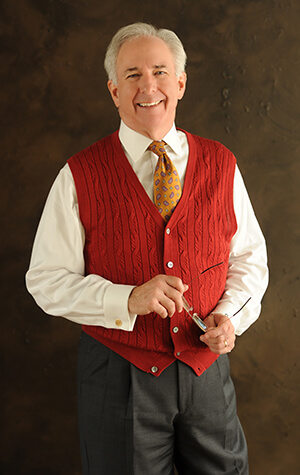A few years back, in one of those “out of the blue” moments, a call showed up on my phone from a senior client. Unexpected. On the weekend. Concerning. They both were both clients and decades-long friends.
“We had to put John in the hospital yesterday and I wanted you to know.” The shock was compounded by the fact I had recently shared lunch with him. I asked Mary, “What’s going on?” She told me John had gone to Prompt Care with stomach pain only to be sent immediately to the ER because his condition appeared more complicated.
After a brief conversation, I assured her of my concern and prayers and told her I would meet her at the hospital as soon as I could. When I got to John’s room, an aide was preparing to take him for an MRI, so our visit was short. I spent time with Mary and then drove home.
We expect health challenges from our senior clients. Though all of us are aging, reaching the ninth decade of life brings a nuanced definition to “mortality.” More times than not, staring at mortality shows up with little or no warning. What’s an advisor to do?
First, weave into a client meeting beneficiary update and legal planning document questions. Be proactive by positively including these topics. Our team encouraged clients, like Mary and John, to review their wills, advance directives, and beneficiaries once a year.
Even more critical may be checking to see if these vital documents have been scanned into the client’s account. When I have sensed the near possibility of a client’s death, these kinds of questions and others tend to line up in my mind like planes awaiting takeoff:
- Is there a durable power of attorney in effect?
- Have the clients named their children or a close family member as people you can call if the need arises?
And then there are the tough “what if” conversations. In crisis moments, the depth of our advisory relationship either draws strength from years of working with a client or forces us to hide behind our failure and insecurity knowing we failed to have those deeper, meaning-of-life discussions. When that call came years ago, I was so grateful my relationship with this couple was healthy and strong.
Advisors who choose nourishing relationships have reserves of compassion and care that come to the surface, especially when a client stares mortality in the face. We know the other person’s heart and they know ours. Such bonds transcend statements and reviews and are more powerful than any other work we may do past, present, or future.



 Dr. Tim Owings is the preeminent authority for care-centric client engagement in the service-oriented industries of finance, accounting, law, insurance, and human resource management.
Dr. Tim Owings is the preeminent authority for care-centric client engagement in the service-oriented industries of finance, accounting, law, insurance, and human resource management.